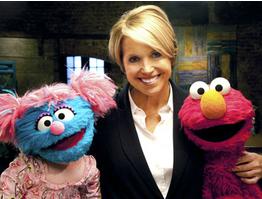Social Worker Hopes Parents, Kids Will Learn From PBS Special on Grief
American society has become so fast-paced we often don’t give ourselves time to grieve properly, social worker Mary Owen said.
We have “a society that doesn’t stop for much of anything,” said Owen, LCSW, clinical director of the Wendt Center for Loss and Healing in Washington, D.C. “It’s kind of like the show must go on.”
That is why Owen thinks it is important for families to watch the upcoming PBS special “When Families Grieve.” Owen served on the advisory board of the program, helping show writers decide what topics to cover. The program follows several families that experienced death and lets them share strategies they used to deal with grief.
One of the families the program visits is that of social worker Kim Ruocco. Ruocco’s husband John was a Marine Corps helicopter pilot who committed suicide. Kim Ruocco got a masters degree in social work and is now director of suicide outreach and education for the Tragedy Assistance Program for Survivors. TAPS is a Washington, D.C.-based nonprofit that helps grieving military families.
“When Families Grieve” is hosted by newscaster Katie Couric and features the Muppets of Sesame Street. Owen said it was not difficult being an advisor to the program. Sesame Street writers came to Washington for a one-day conference to ask questions and listen to informational presentations, she said.
Owen said the PBS program is important because Americans have a difficult time handling grief and reaching out to family and friends who experienced death. In the past there were etiquette rules that dictated what colors families could wear and how long they remained socially isolated after a death. However, those hard and fast rules no longer exist.
“It used to be people had very outward signs (of grief),”said Owen, who got her degree in social work from the University of Nebraska. “This included sitting shiva and wearing black.”
“And now thank goodness we’re not tied to strict rules but whenever the pendulum swings it never stops in the middle. In some ways the pendulum has swung to the other side.”
People now feel more obligated to get back to work and school soon after a death and perform tasks and services people expect them to, Owen said. And many Americans are uncomfortable talking about death and grief.
“It becomes the unspoken discomfort,” Owen said. “The more people don’t know what to say the more they want to avoid saying anything.”
Hopefully, “When Families Grieve” will give viewers tools to handle their personal grief and help others.
“When Families Grieve” airs April 14 at 8 p.m. Eastern on PBS. Katic Couric will air a 10-minute feature on the program on CBS on Sunday morning April 11, Owen said. That segment will also feature an interview with NASW member Phyllis Silverman, PhD, an expert on bereavement. For more information on the program click here. And to find out how social workers help families grieve visit the National Association of Social Workers “Help Starts Here” Grief and Loss Web pages by clicking here.
| Leave A CommentAdvertisement
2 Comments
Leave a Comment
You must be logged in to post a comment.




Should be a great program for everyone. Grieving is done differently by everyone and is an ongoing process which lasts forever in many cases. We should respect the grieving process in each individual and model this behavior for our children.
I believe that bereavement is a considerable issue to look at, and programs like this will prove to become a advantageous tool, especially for children who are dealing with grief. It should be noted that with our ever changing world, there is now a more fast pace, which can be evidently seen with current social and popular cultre trends. Note also that with the economic state and the higher cost of living, it can make it difficult for one to grieve for those who are working, because they literally cannot afford to grieve. Children bear the brunt of this also, as academia also does not wait for students who are going through loss. Dealing with loss and grief takes is an excrutiatingly lengthy process that needs a long term relationship bettween the client and clinician.
Having said this, programmes like this can reawaken awareness for other organizations to produce more programmes like this that will be accesible for families and children dealing with grief.